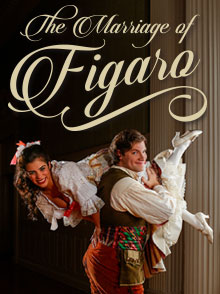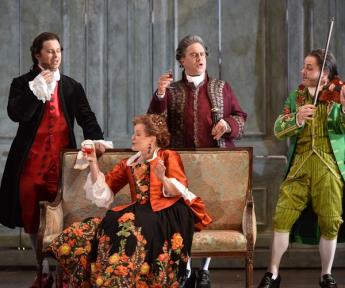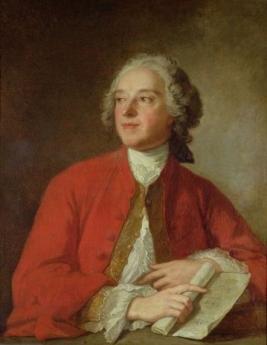Related Topics
Right Angle Club 2017
Dick Palmer and Bill Dorsey died this year. We will miss them.
Revolution in New Jersey
Early, brief but significant.
The Marriage of Figaro, Huzzah!

|
| The Marriage of Figaro |
Whether it was a happenstance or the start of a trend, the recent performance of Mozart's Marriage of Figaro was among a handful of best operas I have ever seen. Or heard, if that is a better figure of speech. Perhaps management was only seizing an opportunity provided by the recent turmoils of the Philadelphia Orchestra; time will tell. The Marriage of Figaro may not be the best opera ever written, since it is the work of a young composer genius who failed to live long enough to mature into his final style (foreshadowed by The Requiem), with a near-perfect rendition of a certain style of opera limited by traditions to the Eighteenth Century, and necessarily limited in the instruments available to a small Central European court comedy.

|
| Philadelphia Opera |
In some ways, it illustrates the fifteen or so early comedies of Shakespeare, all of which would have been improved by music and women players. Some are better renditions than others, but they all sort of seem alike. A Shakespearean comedy set to music might be a way to describe it. Although it has star performers, in a certain sense it has ten central characters, five male and five female. All of these get their moment of solo prominence, while two of them (one male and one female) got the final bows to rising applause from a standing audience. Nevertheless, it is the performance of the entire company which delights the audience. It had one sour note at the beginning last night, and it was a little too long, but these seemed the rough edges of a nervous young performance, not the embarrassments of some overweight visiting stars.

|
| Count Pierre Beaumarchais |
This is, after all, Philadelphia, and one serious local flaw must be mentioned. The program mentioned Mozart, and the librettist Lorenzo da Ponte, but the historical roots of this opera apparently escaped the notice of management. The opera is a derivative of a play by Beaumarchais, who played a central role in the American Revolution. Count Pierre Beaumarchais was watch-maker to King Louis, as a result of inventing the escapement that made the pocket watch possible. As such, he was a member of the Court, but King Louis XVI didn't know what to do with a famous inventor who persisted in flitting about the Court delivering billet doux to amorous courtiers and ladies of the Court. So he was dispatched as a spy to the English Court, and became infatuated with the revolutionary ideas of John Wilkes. Returning to the French Court, Beaumarchais persuaded Louis that what the rebels needed was gunpowder. Eventually, this led to a French boat loaded with gunpowder arriving at a party given by Robert Morris, asking if it was possible to speak to George Washington. Unfortunately, Washington was at Trenton, trying to decide if he could risk an attack on Trenton, in spite of lack of gunpowder. So Morris arranged a meeting, the eventual outcome of which was winning at Trenton and Princeton, later Saratoga, and Benjamin Franklin exaggerating these victories into an alliance with France which won the Revolution. Franklin became great friends with Mozart and sent him a rendition of the Armonica, a musical instrument Franklin invented which wowed 'em in Europe. Meanwhile, Beaumarchais wrote his play and Mozart converted it into an opera, useful as propaganda in the French Revolution.

|
| Madam Butterfly |
It is probably a reflection of the many recent immigrants to Philadelphia from other cities who now dominate our entertainment scene, that this vital piece of history is not even mentioned in the program notes, much of which took place a few blocks from what is now the Academy of Music. By the way, much the same fate befell Madam Butterfly, written on a table of the Franklin Inn, only one block from the Academy.
Originally published: Saturday, April 29, 2017; most-recently modified: Friday, May 31, 2019